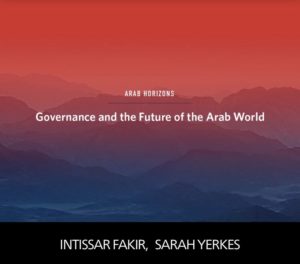 Like authoritarians elsewhere, [Arab autocrats] rely mostly on domestic tools, notes Amy Hawthorne, deputy director of research at the Project on Middle East Democracy. These include control over the military and police to crush dissent; over media and the education system to shape public opinion; and over state resources to fund corruption networks.
Like authoritarians elsewhere, [Arab autocrats] rely mostly on domestic tools, notes Amy Hawthorne, deputy director of research at the Project on Middle East Democracy. These include control over the military and police to crush dissent; over media and the education system to shape public opinion; and over state resources to fund corruption networks.
They also know how to exploit security threats and societal divisions to justify the need for “order,” and to inculcate sufficient fear, or apathy, to deter most citizens from rising up, she tells Carnegie’s Diwan.
 The persistence of despotism and the failure of democratic transitions in several Arab countries are the outcome of domestic causes, argues Amr Hamzawy, senior research scholar at Stanford University’s Center on Democracy, Development, and the Rule of Law (CDDRL). In Saudi Arabia and Egypt, Arab citizens have been deprived of their freedom either because repressive state institutions have kept them in check or because the fear of instability and the threat of civil war have led them to favor despotism over chaotic democratic transitions.
The persistence of despotism and the failure of democratic transitions in several Arab countries are the outcome of domestic causes, argues Amr Hamzawy, senior research scholar at Stanford University’s Center on Democracy, Development, and the Rule of Law (CDDRL). In Saudi Arabia and Egypt, Arab citizens have been deprived of their freedom either because repressive state institutions have kept them in check or because the fear of instability and the threat of civil war have led them to favor despotism over chaotic democratic transitions.
The Middle East Institute (MEI) and the Southern Methodist University Tower Center for Political Studies will host a half-day conference on the ongoing turmoil in North Africa and its implications for the region’s future. Two keynote addresses and three panels will delve into the democratic transitions across the region, prospects for regional coordination in trade and diplomacy, and the role of the public and private sectors in encouraging economic growth.
Agenda
12:30pm-12:45pm | Opening Remarks
12:45-1:45pm | Panel I: The State of North Africa’s Political Transitions
 Intissar Fakir, Fellow, Middle East program and editor-in-chief, SADA, The Carnegie Endowment for International Peace (co-author of Arab Horizons).
Intissar Fakir, Fellow, Middle East program and editor-in-chief, SADA, The Carnegie Endowment for International Peace (co-author of Arab Horizons).
Ambassador (ret.) Robert S. Ford (via Skype), Senior fellow, MEI
Fatima Hadji, Senior program officer, National Endowment for Democracy
Allison McManus, Research director, Tahrir Institute for Middle East Policy
Ishaan Tharoor, moderator, Foreign affairs correspondent, The Washington Post
1:45-2:45pm | Panel II: Regional Diplomacy and Trade Relationships
Emiliano Alessandri, Scholar, MEI
Alexis Arieff, Specialist in African Affairs, Congressional Research Service
Jonathan Winer, Scholar, MEI
David Lawler, moderator, Editor, Axios world stream
2:45-3:15pm | Coffee Break
3:15-4:15pm | Panel III: Prospects for Economic Growth and Energy Innovation
Shahed Amanullah, Co-founder, Affinis Labs
Mohamed Abdel Jelil, Research analyst, The World Bank Group
Mohsin Khan, Nonresident senior fellow, Rafik Hariri Center for the Middle East, Atlantic Council
Paul Sullivan, Professor of economics, National Defense University
4:15-4:30pm | Closing Remarks
Wednesday, May 8th – 12:30pm-4:30pm
Middle East Institute, 1319 18th Street NW, Washington, DC 20036.







